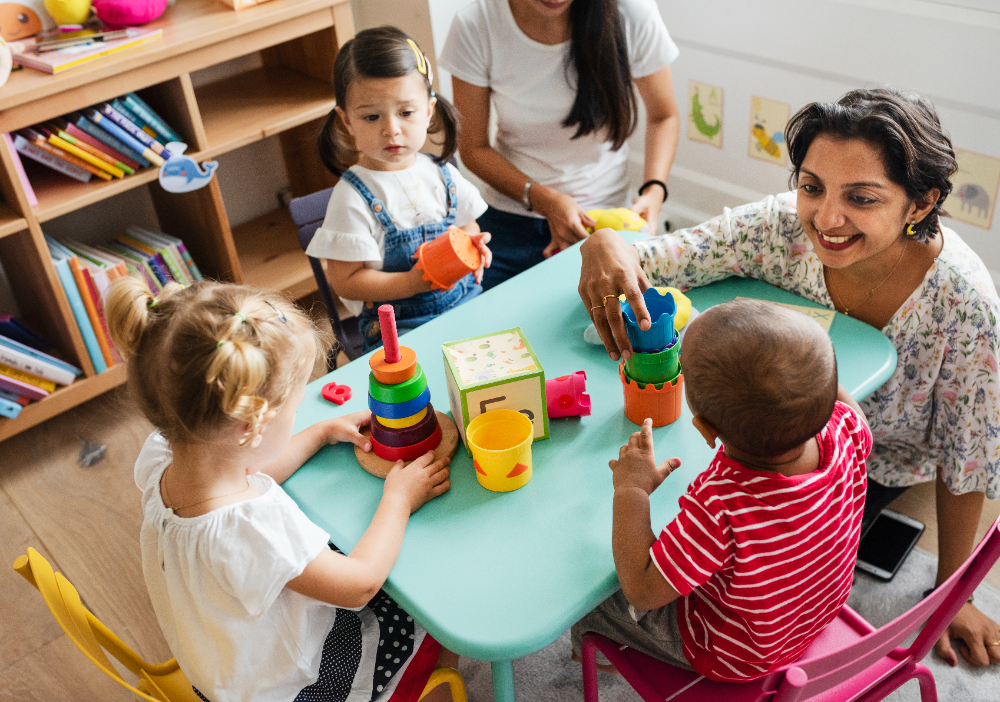Curious Minds, Bright Futures: Early Years Learning at DYPIS
Curiosity, exploration, and discovery are all a part of early childhood education. Children’s future learning and personal development are all defined by the experiences they have during these early years. DYPIS believes in nurturing a child’s natural curiosity, while fostering independence and a lifelong love for learning. We achieve this through bringing together various internationally recognised teaching approaches, creating a rich and engaging environment that supports each child’s individual needs.
Our commitment to holistic development is shown in our Early Years Program and the International Baccalaureate Primary Years Programme (IB PYP). Both are created to encourage learners to think critically, cooperatively and take responsibility for their learning journey.
Approaches to Early Years Education:
Every student has a different way of learning, and there is no one-size-fits-all method when it comes to early childhood education. At DYPIS, we embrace a blend of teaching methodologies, making sure that our students receive a holistic foundation for learning. Here are some of the key approaches we integrate into our classrooms:
Play-Based Learning:
Children thrive most through purposeful play. Whether pretending, constructing with blocks, or experimenting with creative arts, playful exploration helps them naturally build cognitive, social, emotional, and physical abilities. These experiences nurture problem-solving, teamwork, and communication skills while sparking curiosity about the world.
Montessori Approach:
The Montessori approach prioritizes self-guided discovery, allowing children to investigate concepts independently through hands-on materials tailored to their developmental needs. This method cultivates autonomy, focus, and analytical skills within an adaptable yet organized environment. Everyday practical tasks enable young learners to develop self-assurance and accountability, equipping them to take ownership of their educational path.
Reggio Emilia Approach:
This learner-focused philosophy views children as competent, imaginative thinkers. They articulate thoughts and feelings through creative expression like art, storytelling, drama, and tactile projects. Cooperative partnerships form the foundation of this method, with educators, families, and learners collaborating to record and analyze educational journeys. The physical space acts as a vital collaborator—a “third educator”—crafted to stimulate investigation and insight.
Inquiry-Based Learning:
Inquiry-driven education ignites curiosity by empowering children to pose questions, explore subjects, and uncover answers through collaborative discovery. Instead of absorbing knowledge passively, learners engage directly in their educational process, honing analytical thinking, research abilities, and innovative problem-solving techniques. This method integrates naturally with the IB PYP framework, fostering profound comprehension and purposeful learning relationships.
A Blended Approach at DYPIS
At DYPIS, we carefully integrate various educational strategies to cultivate a comprehensive and stimulating learning environment. Here’s how we incorporate them into our classrooms:
Play-Based Learning is seamlessly integrated into daily routines, from role-playing to outdoor exploration, aiding children in developing social and cognitive skills in an enjoyable and interactive manner.
Montessori-inspired methods offer structured learning opportunities with hands-on materials that enhance fine motor skills, critical thinking, and autonomy.
The Reggio Emilia Approach promotes creativity through project-based learning, where children record their findings and work together on significant projects.
Inquiry-Based Learning forms the core of our IB PYP curriculum, encouraging curiosity, critical thinking, and student-driven investigations. Students are encouraged to explore and investigate various factual topics.
By integrating these approaches, we foster a vibrant and supportive atmosphere that caters to every child’s individual learning path. Our aim is to cultivate self-assured, autonomous, and curious learners who are prepared to face the future’s challenges with eagerness and determination. Come be a part of DYPIS, where young minds thrive through discovery, innovation, and a passion for learning!
Author: Ms. Meena Sampat
(CLS English and Drama Facilitator )


